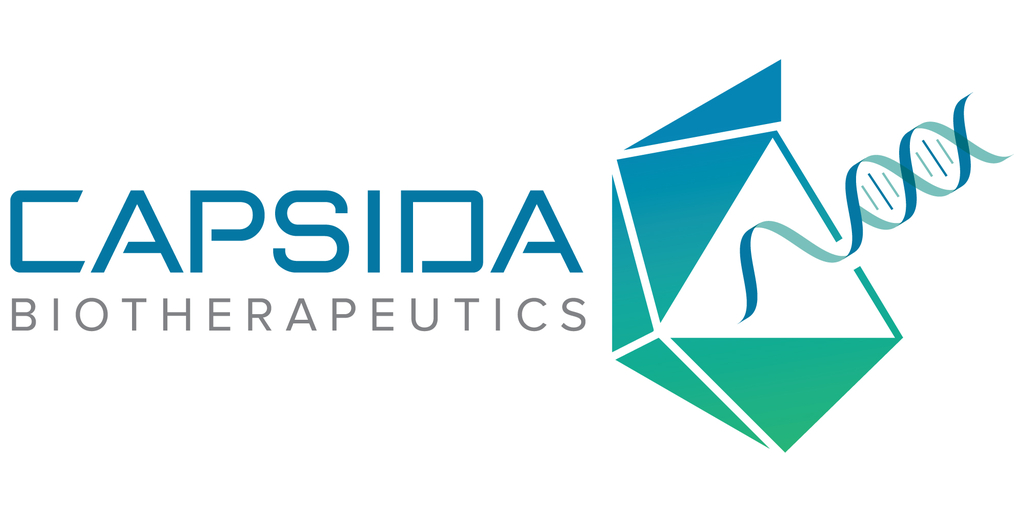Data show CAP-002 has potential to safely correct seizures, developmental disabilities, and motor abnormalities after single IV infusion
Oral presentation today at ASGCT 2025 annual meeting
THOUSAND OAKS, Calif.–(BUSINESS WIRE)–Capsida Biotherapeutics (“Capsida”) today announced the presentation of new non-human primate (NHP) GLP toxicology data for CAP-002, its wholly owned first-in-class, intravenously (IV) administered investigational gene therapy for syntaxin-binding protein 1 developmental and epileptic encephalopathy (STXBP1-DEE). These data were the foundation for the Investigational New Drug (IND) application for CAP-002 that was recently cleared by the U.S. Food and Drug Administration (FDA). Capsida will deliver these data in an oral presentation today at the 28th Annual Meeting of the American Society of Gene & Cell Therapy (ASGCT), taking place May 13-17, 2025, in New Orleans and virtually.
The three-month cohort data from the NHP GLP toxicology study demonstrate dose-dependent brain-wide expression of STXBP1 and simultaneous detargeting of the liver and dorsal root ganglia (DRGs). CAP-002 was delivered as a single dose via IV infusion at 3.8E13 vg/kg, 5.9E13 vg/kg, and 7.4E13 vg/kg. There was a dose-dependent increase in average cargo RNA levels in the brain, with the 3.8E13 vg/kg dose of CAP-002 demonstrating a 207-fold increase over cargo RNA levels previously shown for 2.5E13 vg/kg of IV-delivered adeno-associated virus 9 (AAV9). Together with pharmacology data in a mouse model of STXBP1-DEE, these NHP GLP toxicology results show that all doses of CAP-002 tested have the potential to fully correct seizures and meaningfully correct cognitive and motor dysfunction in patients. The 3.8E13 vg/kg dose of CAP-002 also demonstrated robust 10x and 13x detargeting of liver and DRGs respectively, compared to a 2.5E13 vg/kg dose of AAV9. CAP-002 was well tolerated with no adverse clinical pathology or histopathology findings throughout the central nervous system, DRGs, or peripheral organs, including the liver.
CAP-002 is the first IV-administered, AAV blood brain barrier-crossing genetic medicine program entering a human clinical trial. CAP-002 is manufactured in Capsida’s state-of-the-art wholly owned facility using a proprietary manufacturing process. Capsida received FDA Orphan Drug Designation in October 2024 and is now initiating study start-up activities for the SYNRGY Phase 1/2a clinical trial, with the first patient expected to be dosed in the third quarter of this year.
“These GLP toxicology data established the potential of CAP-002 to safely treat STXBP1-DEE and were a critical part of the data package to enable the FDA IND clearance of this first-in-class IV investigational gene therapy,” said Swati Tole, M.D., Chief Medical Officer of Capsida Biotherapeutics. “Our focus is on initiating our Phase 1/2a SYNRGY clinical trial with the aim of providing a safe, disease-modifying treatment for STXBP1-DEE patients and their families.”
Presentation Details
Oral Presentation:
- Title: Systemic Gene Therapy CAP-002 Demonstrates Potential for Disease-Modifying Treatment of Seizures and Motor and Cognitive Deficits of STXBP1-DEE Using an Engineered, CNS-Targeted AAV
- Date and Time: May 14, 2025, 3:45-4:00 PM CT
- Session: Viral Vectors in Large Animal Models
- Location: New Orleans Theater B
- Presenter: Nicholas Flytzanis, Ph.D., Founder, Chief Research and Innovation Officer, Capsida
Abstracts can be found at https://annualmeeting.asgct.org/ and the presentation will be available under the “Publications” section of the Capsida website.
About STXBP1-DEE
Syntaxin-binding protein 1 developmental and epileptic encephalopathy (STXBP1-DEE) is estimated to affect up to one in 26,000 births globally, equating to approximately 5,000 pediatric patients in the U.S. and Europe. The STXBP1 protein is present in every neuron and is essential for normal neurotransmission. Mutations in the STXBP1 gene are associated with early-onset seizures, severe developmental delay and intellectual disability, motor abnormalities, and a risk of sudden unexpected death in epilepsy (SUDEP). There are no approved treatments for STXBP1-DEE.
About Capsida Biotherapeutics
Capsida Biotherapeutics is a fully integrated next-generation genetic medicines company with a central nervous system (CNS) pipeline consisting of disease modifying and potentially curative treatments for rare and more common diseases across all ages. Capsida’s wholly owned pipeline includes its first-in-class treatment for STXBP1 developmental and epileptic encephalopathy (STXBP1-DEE), which has received Investigational New Drug (IND) clearance to initiate clinical trials from the U.S. Food and Drug Administration (FDA). Capsida’s pipeline also includes potential best-in-class treatments for Parkinson’s disease associated with GBA mutations (PD-GBA) and Friedreich’s ataxia (FA). The PD-GBA program is also on track to enter clinical development this quarter. In addition to its wholly owned programs, the Company has validating partnerships with AbbVie, Lilly, and CRISPR Therapeutics. Capsida was founded in 2019 by lead investors Versant Ventures and Westlake Village BioPartners and originated from groundbreaking research in the laboratory of Viviana Gradinaru, Ph.D., a neuroscience professor at Caltech. Visit us at www.capsida.com.
Contacts
Media Contact
Greig Communications, Inc.
Kathy Vincent
[email protected]



